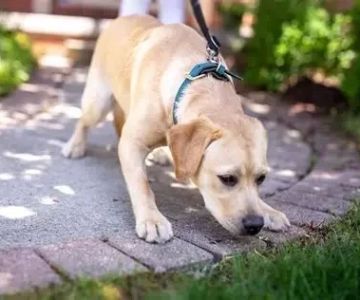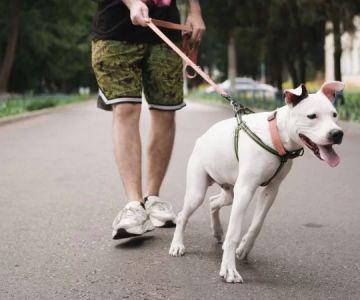How to Train a Dog to Stop Digging Holes in the Yard
As a pet owner, it can be incredibly frustrating when your dog starts digging holes in the yard. Whether it's to escape, chase after something, or simply out of boredom, digging is a common behavior that many dog owners deal with. If you're struggling with a dog who loves to dig, this guide will offer practical solutions to help curb this behavior and restore your yard to its former glory. Here, I'll share some of the best methods and tricks to train your dog to stop digging holes in the yard.
1. Understand Why Your Dog Digs
Before jumping into training techniques, it's important to understand why your dog is digging in the first place. Dogs dig for a variety of reasons, and pinpointing the cause can help you address the issue more effectively. Common reasons for digging include:
- Boredom – If your dog isn't getting enough mental stimulation, they may dig to pass the time.
- Instinctual behavior – Certain breeds, like terriers, have a strong digging instinct due to their history as hunters.
- Seeking comfort – Your dog may be digging to find a cooler or warmer spot to rest depending on the weather.
- Separation anxiety – Dogs with separation anxiety may dig as a way to relieve stress when left alone.
- Escape attempts – Some dogs dig to escape the yard, especially if they're not comfortable or have access to an exciting area outside.
2. Provide Enough Exercise and Mental Stimulation
One of the most effective ways to stop a dog from digging is to ensure they are mentally and physically stimulated. A dog that gets enough exercise is less likely to dig out of boredom. Try the following:
- Regular walks – Aim for at least 30 minutes of exercise each day to help your dog burn off excess energy.
- Interactive toys – Provide puzzle toys or treat-dispensing toys to engage your dog’s mind and keep them entertained.
- Playtime – Spend time playing with your dog in the yard to keep them active and engaged.
3. Create a Digging Area
If your dog’s digging behavior is persistent, consider creating a designated digging area in your yard. This approach allows your dog to express their natural digging instinct in a controlled space. To do this:
- Choose a spot – Select an area where your dog can safely dig, away from any plants or structures you want to protect.
- Encourage digging – Bury a few of your dog's favorite toys or treats in the designated area to encourage them to dig there.
- Reinforce good behavior – Whenever your dog digs in the right spot, reward them with praise and treats.
4. Use Training Commands
Training your dog to stop digging can also involve using basic commands like "stop" or "leave it." Here's how to incorporate training into your efforts:
- Interrupt digging – When you catch your dog digging, firmly say "no" or use another command like "leave it." Redirect them to a more acceptable activity like fetching a toy.
- Reward good behavior – Always reward your dog when they listen to your command and stop digging. Use treats or affection as positive reinforcement.
5. Address Separation Anxiety
If your dog is digging due to separation anxiety, it's essential to address the root cause of the behavior. Dogs with separation anxiety may feel stressed when left alone and dig as a way to cope. Here’s what you can do:
- Increase security – Make your dog feel more secure by providing them with a comfortable space when you leave, such as a crate or a small room with familiar items.
- Desensitize your dog – Gradually increase the amount of time you spend away from your dog to help them adjust to being alone.
- Consult a professional – In severe cases, consult with a veterinarian or dog trainer who specializes in separation anxiety.
6. Reinforce the Boundary
If your dog is digging to escape the yard, it's important to make sure they can't dig their way out. Some steps you can take to reinforce the boundary include:
- Secure the fence – Check your fence for any gaps or areas where your dog could slip through. Add additional layers or bury the fence a few inches into the ground to prevent digging underneath.
- Supervision – Supervise your dog when they are outside to ensure they don't start digging in vulnerable spots.
7. Use Deterrents
In some cases, using safe deterrents can discourage your dog from digging in certain areas. These include:
- Commercial sprays – There are commercial sprays available that have an unpleasant scent that discourages digging. You can spray these on areas where you don't want your dog to dig.
- Homemade solutions – You can also try using natural deterrents like citrus or vinegar in areas where your dog tends to dig.
8. Patience and Consistency
Training your dog to stop digging takes time and consistency. It's important to remember that this is a gradual process, and you might not see immediate results. Stay patient and keep reinforcing the behavior you want to see. With time, your dog will learn to stop digging and enjoy the yard in a more controlled way.
If you're looking for professional help with your dog’s behavior or need assistance with other pet-related issues, be sure to visit Hidden Brook Veterinary for expert advice and services.










